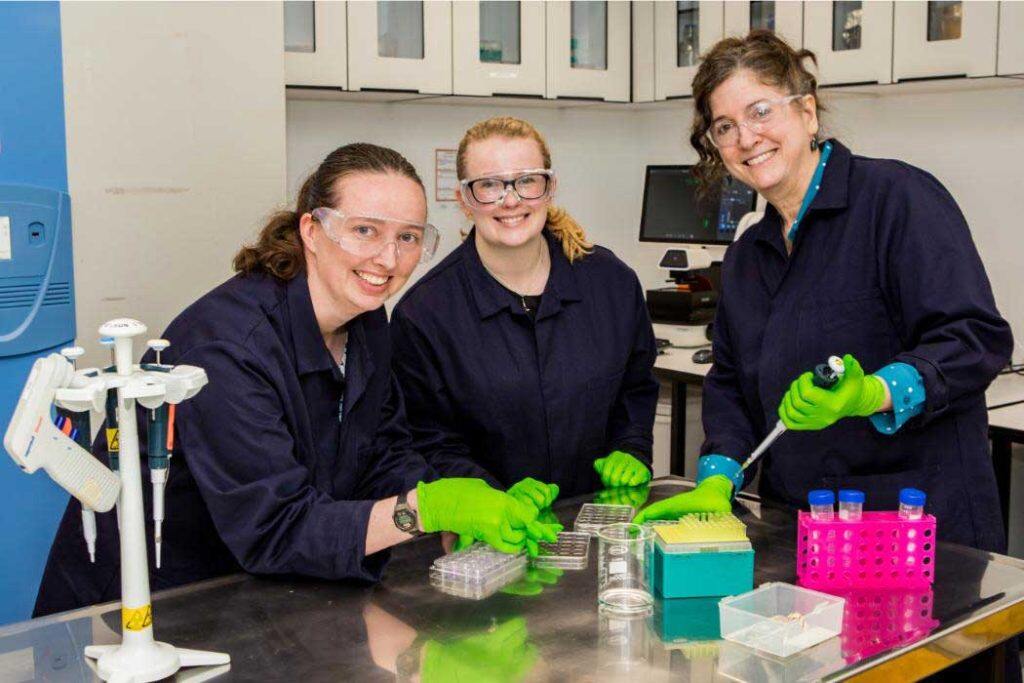A Canterbury researcher hopes her newly-funded research will lead to better ways of managing endometriosis, a disease that affects over 100,000 Kiwi women.


Dr Rachael Wood from Te Whare Wānanga o Waitaha | University of Canterbury (UC) will receive $360,000 over three years in a Te Pūtea Rangahau a Marsden Fast-Start grant announced today.
Dr Wood is one of 15 University of Canterbury academics to receive 2023 Marsden Fund grants from the Royal Society Te Apārangi, worth a combined $9.64 million over the next three years.
This includes six Fast-Start grants of $360,000 which support early career researchers to develop independent research and build their research career in Aotearoa.
Her project will investigate the invasive mechanics of endometriosis, an incurable disease that can cause debilitating pain, fatigue and nausea, as well as reduced fertility. While it affects 10 per cent of New Zealand women (and those assigned female at birth) it remains poorly understood and difficult to diagnose and treat.
In a groundbreaking pilot project, Dr Wood and her team from UC’s Department of Chemical and Process Engineering, found that endometriosis has similar invasive properties to hormone-driven cancers. With her Marsden Fund Fast-Start grant, she hopes to determine how endometriosis tissue modifies its environment to aid invasion.
Dr Wood and her research team will measure the mechanical properties of healthy endometrial and diseased endometriosis tissues and use these measurements to build 3D, mechanical models that can be used for experimental work.
“By observing how healthy and diseased cells interact with different tissue models, we hope to better understand the onset and progression of endometriosis, and how this compares to cancer,” Dr Wood says.
The project will help to uncover how the mechanical properties of tissue, such as stiffness, are impacted by the invasion of endometriotic cells. “Ultimately, this knowledge may help to identify new diagnostic and treatment strategies for endometriosis, potentially bringing relief to millions worldwide.”
UC’s successful Marsden-funded projects this year cover a broad range of topics including remote sensing technology that can be used to help conserve water by identifying damage to water pipelines, exploring changes to speech and language with aging, and tracing the evolution of planetary systems.
UC Acting Vice-Chancellor Research Peter Gostomski says the breadth of the research projects is impressive. “Our researchers are at the leading-edge, thinking innovatively and carrying out work that will extend the boundaries of fundamental knowledge and benefit people in Aotearoa and around the world.”
Marsden Fund Council Chair Professor Gill Dobbie says nationally the grants allow recipients to carry out fundamental research across a huge range of disciplines, including topics with global significance.
This year over half of the lead investigators on funded projects for 2023 identify as women – the highest proportion of female-led projects in the Marsden Fund’s history.
“It is really heartening to see so many wāhine amongst our winners, given the obstacles that continue to discourage women from pursuing careers in research,” Professor Dobbie says.
“Increasing inclusion and representation in our research communities will allow us collectively to better serve the country as a whole, as well as creating space for novel ways of thinking and doing research.”
Te Pūtea Rangahau a Marsden is managed by Royal Society Te Apārangi on behalf of the New Zealand Government with funding from the Ministry of Business, Innovation and Employment.








































